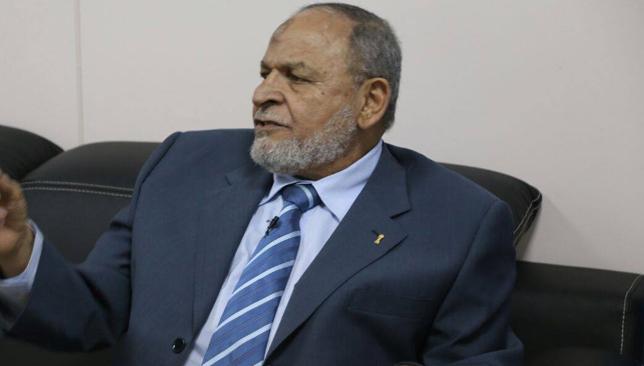
Across six days in 1967, the landscape of the Middle East was drastically changed as the Arab-Israeli conflict left the region bloodied and divided.
As Israeli forces stormed the Egypt-controlled Gaza Strip and air attacks decimated the West Bank, the territories were to never be the same again.
The lives of all involved were to be defined by the events that unfolded between June 5 and 10 and as the death toll rose to more than 20,000 on the United Arab Republic side (Egypt, Jordan and Syria), the countries froze in shock.
Major events were cancelled and sport was not played for a year, meaning irrevocable damage was done to the careers of many athletes.
One such sportsman was Taha Ismail.
A winger for Al Ahly and Egypt who earned 16 caps for his country, Ismail had won the second Africa Cup of Nations with the United Arab Republic in 1959.
A semi-final appearance at the 1964 Olympics in Japan followed, but the UAR lost to eventual winners Hungary before missing out on a bronze medal to Germany.
Ismail was one of the country’s leading players after enjoying such success with his national team that he was, and still is, celebrated as a hero at Ahly – where he spent his entire playing career.
Unfortunately, the enforced sabbatical as a result of the Setback War (also known as the Six-Day War) brought an abrupt end to the then 28-year-old’s playing career. However, as one door closed, another opened.
– Al Ahli: Olaroiu urges side to play for the win in Tehran
– Al Ahli: Fardan believes side’s confidence is better than ever
– #360view: Balotelli is the Premier League’s worst transfer
“My career as a player ended prematurely because of the Setback War. All sports activities were shut down and so I decided that I would retire as a football player,” Ismail explains to Sport360.
“I decided to become a coach instead and so I travelled to Leipzig, Germany to get the training courses necessary. The role as national team coach of Saudi Arabia was empty and so I applied for the job and was hired.”
The move to Saudi Arabia in 1972 marked the start of Ismail’s new journey in football as he set about helping establish the sport in the Gulf nation. It was a test that would have challenged the greatest of managers, let alone one in his first job.
“From the minute I arrived I was applauded by everyone affiliated with Saudi football. Their hospitality and graciousness are unparalleled.”
“Saudi Arabia as a footballing nation was not as strong and the interest in it was not as high as nowadays,” Ismail recalls. “I felt the football federation was rather ambitious though. When I took the helm they told me that we needed to be the Gulf Cup winners. We came close but still it was a step forward.
“The players and officials were all very welcoming. From the minute I arrived until my last day I was applauded by everyone who is affiliated with Saudi football. Their hospitality and graciousness are unparalleled.
“As the economy blossomed there was this feeling that the federation also wanted to flourish and wanted the national team to have a more familiar structure that would help the promising players rise to the top. In my two years being involved in Saudi football I felt that there was progress.”
That progress is evident when you look at Ismail’s record during his three years at the helm. In his first year as Saudi boss, he led the side to a runners-up place in the second Gulf Cup of Nations on home soil.
It is this achievement that Ismail marks as the best of his career.
“My first year as a coach was probably the best memory for me. I always wanted to be a football coach, and my first year with Saudi Arabia was a success as we managed to end as runners-up in the Gulf Cup.
“I wanted to leave a mark in Saudi football and I wish I had more time but I’m very pleased with what was achieved there. Just the experience of coaching a national team was huge.”
The spell in Saudi is something that Ismail believes influenced the remainder of his managerial career, which led him to two stints as Egypt national coach and a year at the helm of Ismaily.
“Coaching in Saudi Arabia enabled me to experience the life of a football coach of a country that wanted to have a steady progress in football. The roles that I went on to have with the Egypt national team and Ismaily were down to my work with the Saudi national team; coaching Saudi Arabia opened the door to coaching in my own country.”
#BREAKING: Former Netherlans boss Bert van Marwijk is the new #SaudiArabia Manager according to multiple reports. pic.twitter.com/OvZlPSPugK
— Ahdaaf (@ahdaafme) August 24, 2015
Ismail is one of 47 men to have coached Saudi Arabia but just three of those have been Saudis. So what is the obsession with foreign bosses?
“In hiring foreign managers the FA believes that they can acquire fresh and new ideas,” Ismail explains.
“They have been hiring foreign managers for the most part of their history. The talent pool of local mangers is rather scarce so looking for foreigners is much easier.”
That approach to hiring gave Ismail his first big break and there’s no question that the 76-year-old, who now works as a TV pundit, will always have a special connection with the Gulf sate.
“I still follow the national team and the league closely as well,” Ismail says. “I personally did not like how the Saudi team performed last season, especially in the Asian Cup. I expected more from them.
“Almost every year I go back to Saudi Arabia for the Umrah (pilgrimage to Mecca). It is a beautiful country and it is very close to my heart. I definitely consider Saudi Arabia my second home.”